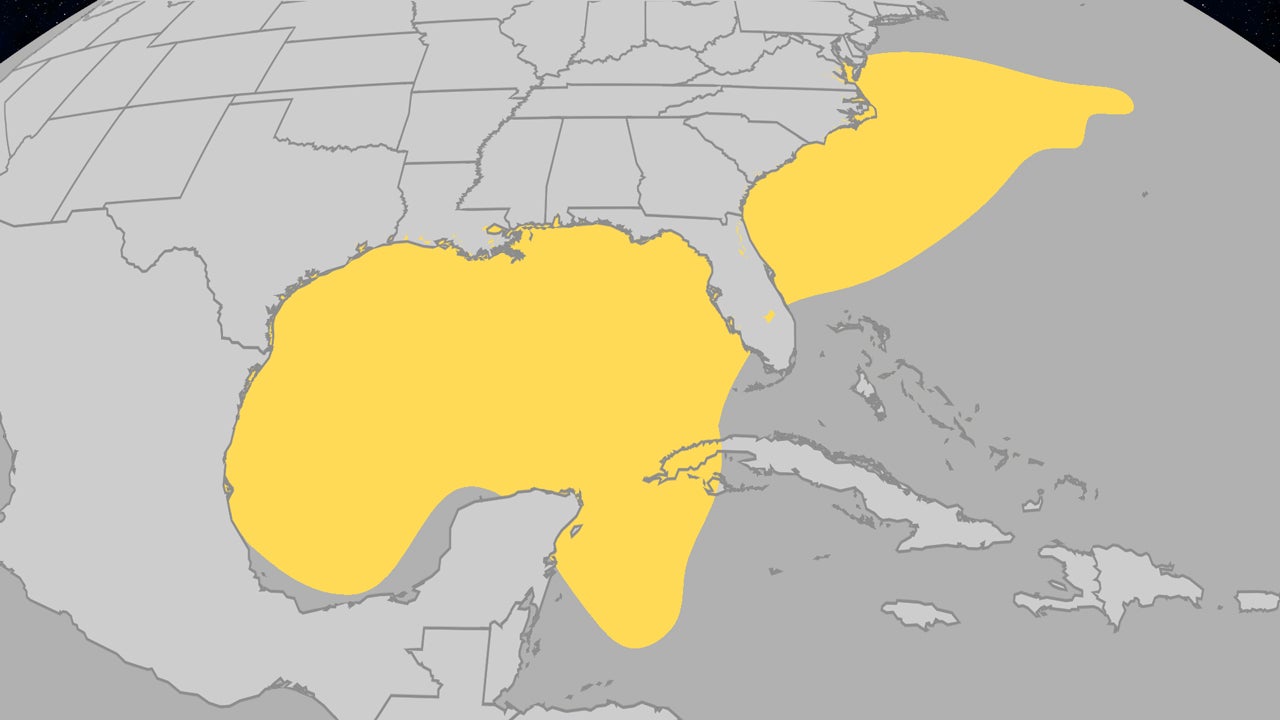Understanding June Hurricanes: Atlantic Storm Development And Increased Activity

Welcome to your ultimate source for breaking news, trending updates, and in-depth stories from around the world. Whether it's politics, technology, entertainment, sports, or lifestyle, we bring you real-time updates that keep you informed and ahead of the curve.
Our team works tirelessly to ensure you never miss a moment. From the latest developments in global events to the most talked-about topics on social media, our news platform is designed to deliver accurate and timely information, all in one place.
Stay in the know and join thousands of readers who trust us for reliable, up-to-date content. Explore our expertly curated articles and dive deeper into the stories that matter to you. Visit Best Website now and be part of the conversation. Don't miss out on the headlines that shape our world!
Table of Contents
Understanding June Hurricanes: Atlantic Storm Development and Increased Activity
June hurricanes are rare, but their occurrence is becoming increasingly noteworthy. While the peak of hurricane season is still several months away (August through October), the Atlantic basin is showing signs of earlier and more intense storm development. Understanding the factors contributing to this trend is crucial for preparedness and mitigation efforts.
This article delves into the science behind June hurricane formation, examines recent trends, and highlights the importance of proactive hurricane preparedness, regardless of the month.
The Science Behind June Hurricanes:
Hurricane formation requires specific atmospheric conditions. These include:
- Warm ocean waters: Sea surface temperatures of at least 80°F (27°C) are necessary to fuel the storm's energy. While June waters may not always reach this threshold across the entire Atlantic, localized areas of warm water can provide the necessary fuel.
- High humidity: Abundant moisture in the lower atmosphere is crucial for condensation, a process that releases the latent heat driving hurricane intensification.
- Weak wind shear: Significant changes in wind speed and direction with altitude (wind shear) can disrupt the organized structure of a hurricane. Lower wind shear allows for more consistent development.
- Pre-existing atmospheric disturbances: Tropical waves, originating from Africa, often serve as the foundation for hurricane development. These waves carry with them areas of disturbed weather, providing a starting point for organization.
Increasing Frequency of Early-Season Hurricanes:
While June hurricanes remain less common than those forming later in the season, data suggests an upward trend in their frequency and intensity. This is likely linked to several factors:
- Climate change: Rising global temperatures contribute to warmer ocean waters, expanding the areas and durations where conditions are favorable for hurricane formation. The Intergovernmental Panel on Climate Change (IPCC) has extensively documented this link. [Link to IPCC report on climate change and hurricanes]
- Ocean currents and oscillations: Changes in ocean currents and oscillations like El Niño and La Niña can influence sea surface temperatures and atmospheric patterns, creating conditions conducive to earlier storm development. These interactions are complex and constantly being researched.
- Improved forecasting technology: Better satellite imagery and atmospheric models allow for earlier detection of potential storms, leading to a greater awareness of even weak June systems.
Preparing for the Unexpected: Hurricane Preparedness Year-Round
Given the increasing likelihood of early-season storms, preparedness should not be limited to the peak hurricane months. Taking action now can significantly reduce your risk:
- Develop a hurricane plan: This plan should include evacuation routes, communication strategies, emergency supplies, and shelter options. The [link to relevant FEMA website] provides excellent resources.
- Secure your home: Strengthening your home's structure, trimming trees, and protecting windows can mitigate damage from high winds and heavy rain.
- Stay informed: Monitor weather forecasts regularly throughout the hurricane season and beyond. Subscribe to weather alerts and follow reputable news sources.
- Assemble an emergency kit: Include essentials such as water, non-perishable food, a first-aid kit, flashlights, batteries, and medications.
Conclusion:
While June hurricanes remain relatively rare, their increasing presence highlights the evolving nature of Atlantic storm development. Understanding the scientific factors, acknowledging recent trends, and proactively preparing for the hurricane season year-round are crucial steps in mitigating the potential risks associated with these powerful storms. Don't wait for a warning; be prepared now.

Thank you for visiting our website, your trusted source for the latest updates and in-depth coverage on Understanding June Hurricanes: Atlantic Storm Development And Increased Activity. We're committed to keeping you informed with timely and accurate information to meet your curiosity and needs.
If you have any questions, suggestions, or feedback, we'd love to hear from you. Your insights are valuable to us and help us improve to serve you better. Feel free to reach out through our contact page.
Don't forget to bookmark our website and check back regularly for the latest headlines and trending topics. See you next time, and thank you for being part of our growing community!
Featured Posts
-
 Pirates Oneil Cruz Launches 122 9 Mph Home Run A New Statcast Record
May 27, 2025
Pirates Oneil Cruz Launches 122 9 Mph Home Run A New Statcast Record
May 27, 2025 -
 Nio Stock Price Prediction Is Now The Time To Buy
May 27, 2025
Nio Stock Price Prediction Is Now The Time To Buy
May 27, 2025 -
 109th Indy 500 A Chaotic Start Reminiscent Of 1992
May 27, 2025
109th Indy 500 A Chaotic Start Reminiscent Of 1992
May 27, 2025 -
 Investor Warns Of Potential Disappointment In Super Micro Computer Stock
May 27, 2025
Investor Warns Of Potential Disappointment In Super Micro Computer Stock
May 27, 2025 -
 Nba Playoffs Kat Fuels Knicks Win Pacers Face Must Win Game 4
May 27, 2025
Nba Playoffs Kat Fuels Knicks Win Pacers Face Must Win Game 4
May 27, 2025
